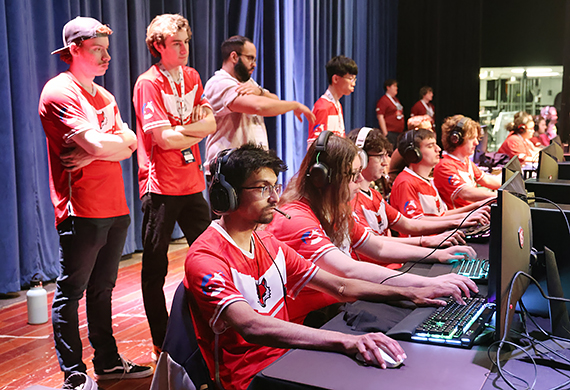Marist Celebrates Diwali
Indian traditions were on full display as Marist celebrated the South Asian festival of Diwali. The Marist community includes a number of faculty, staff, and students who celebrate Diwali, including more than 150 graduate and undergraduate students from India. Special campus-wide activities included a screening of the Bollywood film English Vinglish on October 24 and a celebration of Indian culture featuring Mehndi (henna tattoo) applications and Rangoli art (made with sand and flowers) on October 25. The College’s week-long Diwali festivities culminated on October 27 with a cultural reception in the Murray Student Center. Marist faculty, students, and staff came together to enjoy Indian dancing, music, food, and a fashion show. Special thanks to the Center for Multicultural Affairs, the Asian Alliance, and Marist’s Indian graduate students for organizing these activities.
Indian Culture images
About Diwali
Diwali, the five-day Hindu festival of lights and one of the biggest and most important holidays in South Asia. The festival gets its name from the row of clay lamps that celebrants light outside their homes to symbolize the victory of light over darkness. To celebrate Diwali, people typically dress up in their finest clothing, light lamps and candles inside and outside their homes, and participate in family prayers, typically to Lakshmi, the Hindu goddess of wealth. Prayers are followed by fireworks, a family feast, and an exchange of gifts.
Diwali is also celebrated by members of the Sikh faith, albeit in a different way. The story of Diwali for the Sikhs is a story of the Sikh struggle for freedom. From the time of Guru Nanak (1469 – 1539), the founder of Sikhism, ancient mythological festivals like Holi and Diwali began to take on a new significance. The Guru used these festivals and special days as symbols for his teaching themes. Thus the Sikhs slowly moved toward an ideology based on reason and belief in one creator. “Bandi Chor Diwas” is celebrated on the same day as Diwali, and it affords Sikhs the opportunity to celebrate alongside Hindus and Jains.



